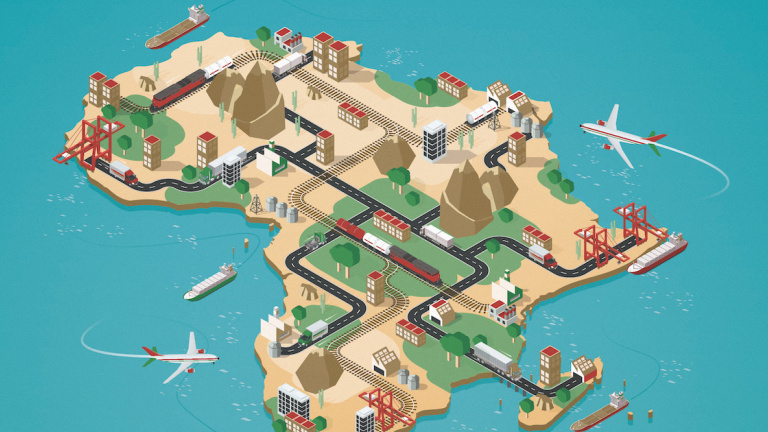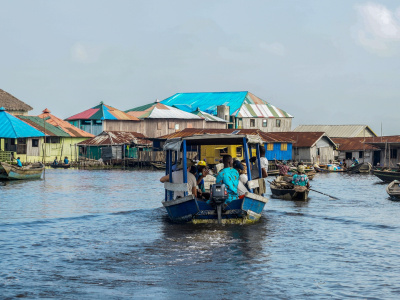
A call for a developmental regionalism approach to the African Continental Free Trade Area (AfCFTA)
African states should adopt a ‘developmental regionalism’ approach to trade integration under the AfCFTA, to ensure that it promotes inclusive economic growth and development, and benefits all African countries.
An important step for African unity
The African Continental Free Trade Area (AfCFTA) was launched on 21 March 2018 at the Summit of the African Union (AU) in Kigali. On that occasion, Rwandan President Paul Kagame declared the AfCFTA as ‘historic’. Seen through the long lens of history, this was indeed a historic event. The AfCFTA is the most ambitious expression yet of the dream and vision of pan-African leaders such as Kwame Nkrumah, Jomo Kenyatta and others who began the long journey towards African unity and integration after de-colonisation and independence of African states in the late 1950s.
Studies by the International Monetary Fund (IMF), the United Nations Economic Commission for Africa (UNECA) and others state that the AfCFTA has the potential to increase growth, raise welfare and stimulate industrial development on the African continent. However, there are also concerns. Some countries, particularly the smaller and more vulnerable African states, may experience fiscal revenue losses and other negative impacts from premature liberalisation.
This is an opportune moment for African policymakers to ask two pertinent questions: How can the AfCFTA advance inclusive growth and economic development of the African continent? And how can the AfCFTA benefit all African countries? These objectives can be achieved if African states adopt a ‘developmental regionalism’ approach to trade integration that includes fair trade, building regional value chains, cross-border investment in infrastructure and strengthening democratic governance.
Fair trade
African states vary widely in size and economic development, and some may warrant special attention and specific treatment. In particular, among Africa’s 55 states are 34 Least Developed Countries (LDCs), 16 Landlocked LDCs (LLDCs) and six Small Island Developing States (SIDS). Building trade agreements in favour of small and less developed economies will assist in contributing to fairer outcomes of the AfCFTA. African governments should ensure that their stakeholders – businesses (both big and small), trade unions and civil society organisations – are included in the national consultation process. They also need to provide their negotiators with clear mandates for the negotiations, and build effective institutions that are inclusive and enable the fullest participation of stakeholders in the negotiations. This will improve both the quality and the sustainability of the AfCFTA Agreement.
Building regional value chains
African countries are increasingly connected to the global economy through global value chains (GVCs). However, they tend to operate at the lowest rung of the ladder in GVCs, mainly supplying raw materials and other low-value manufactured outputs. Cooperation is needed between Africa’s emerging entrepreneurs and industries to build regional value chains and improve the competitiveness of African industries in global markets. Working together they can build regional value chains that will advance transformative industrialisation, help African countries obtain a fairer share of the value derived from African commodities and labour, and improve the lives of people on the African continent. The AfCFTA must facilitate this process.
Cross-border infrastructure investment
Since most African countries are LDCs, LLDCs or SIDS, boosting intra-regional trade will require them to cooperate to improve their infrastructure. This includes both hard infrastructure, such as ports, roads and railways, and soft infrastructure, such as customs procedures at borders, port efficiency and reduction of roadblocks along major transport routes. Progress is being made. Examples of this include the Mombasa-Nairobi Corridor; the Addis to Djibouti road, rail and port connection; and the Abidjan-Lagos Corridor, which handles more than two-thirds of West African trade. Increased investment in these types of cross-border infrastructure projects will increase connectivity and facilitate the inclusion of less developed countries in the benefits of regional integration.
Democracy and governance
Most African states have started accepting multi-party systems of governance in the new millennium. Multi-party elections have begun to replace military coups. Most African countries have embraced a culture of constitutionalism, rule of law and human rights. Democratic governance supported by active citizenship will create an environment of transparency, predictability and certainty that encourages both domestic and foreign investment that is so vital for growth and transformative industrialisation. Such a process of inclusive development is in turn essential for the sustainability of economic integration and democratic governance in Africa.
The African Peer Review Mechanism (APRM) is an instrument that is voluntarily acceded to by AU member states. Countries subject themselves to being examined in governance areas within established guidelines. Several academic writers have observed that the APRM is a truly indigenous and locally owned initiative designed by Africans for Africans. This is a remarkable achievement that the AfCFTA must build on.
The way forward
These four pillars of developmental regionalism have begun to gain traction across Africa, and are on their way to becoming mutually reinforcing in practice. This approach to regional integration in Africa has great potential to catalyse and accelerate a virtuous circle of regional trade integration, transformative industrialisation, cross-border infrastructure, democracy, inclusivity and good governance across the continent. Policymakers need to make the necessary linkages both conceptually and in practice. The AfCFTA could thus become a landmark in the transition to a new phase in Africa’s historic journey towards the dream of the pan-African leaders for a peaceful, prosperous and integrated Africa.
About the author
Faizel Ismail is Director of the Nelson Mandela School of Public Governance, University of Cape Town.
Read the full magazine issue








